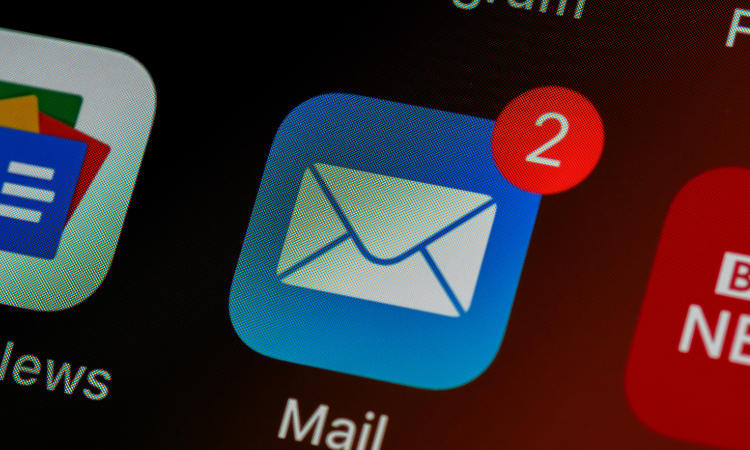Generating traffic and leads is a major challenge for over 61% of marketers, according to HubSpot's State of Marketing report. To overcome this hurdle and drive revenue, it is crucial to effectively generate high-quality leads.
But how do you do that?
By collecting the information of your prospects with effective lead generation surveys at the right place and right time and nurturing them until they are ready to convert into buying customers.
A lead generation survey provides an opportunity to collect qualitative and quantitative data, enabling you to tailor your sales approach to meet each lead's unique requirements. By leveraging the power of lead capture software, you can create actionable surveys that have a higher chance of converting promising leads into loyal customers.
Capture Qualified Leads at Events🔥
Effortlessly collect leads for your business and gather data with Zonka Feedback’s Lead Capture Forms.

In this blog, we will explore the power of B2B lead generation survey questions and their significance in unlocking crucial information. We will also look at the best practices for designing and conducting B2B lead generation surveys, different methods for distributing the surveys, and their importance. So without further ado, let’s get started!
Table of Content
- What is Lead Generation Survey?
- Lead Generation Survey Questions
- Questions based on Types of Leads
- Best Practices for Lead Generation Surveys
- How to Conduct Lead Generation Survey?
- How to Maximize Lead Generation Survey Response?
- Why Conduct Lead Generation Surveys?
- Conclusion
What is a Lead Generation Survey?
A lead generation survey is used to gather valuable information from potential customers. It involves asking targeted questions to capture data on demographics, buying intent, budget, and other relevant factors.
The primary objective of a lead generation survey is to effectively qualify leads, tailor marketing efforts, and boost conversion rates by gaining a comprehensive understanding of potential customers' specific needs. It addresses crucial questions such as whether the lead belongs to the marketing or non-marketing division of their company, the type of product they are seeking, the size of their team, and their purchase timeline.
By delving into these details and more, you can align your offerings with customer expectations, enhance personalization, and significantly increase the likelihood of converting leads into loyal customers. Through the power of a well-designed lead generation survey, you can gather actionable insights, optimize your marketing strategies, refine your product and achieve higher levels of customer satisfaction.
Lead Generation Survey Questions
Creating effective lead generation survey questions is crucial for capturing valuable customer insights and driving successful lead generation efforts. Asking the right questions is the key to unlocking a deeper understanding of your target audience and their needs. Lead generation surveys are generally microsurveys that are concise and short, directly targeting the leads to gauge their needs. By crafting targeted and relevant survey questions, your sales team can easily identify potential customers and engage with them better to convert them into customers.
Let us look at some important lead generation survey questions that you can ask your potential leads.
1. Personal & Demographic Information
Personal and demographic information provides insights into the characteristics and traits of your potential leads. It helps you understand their age, gender, location, industry, job role, and other relevant details. This data allows you to tailor your marketing efforts and communication to resonate with your target audience more effectively and build stronger relationships.
Additionally, you can segment your leads into different groups based on shared characteristics. This user segmentation allows you to create personalized marketing campaigns, messaging and offers that cater to the specific needs and preferences of each segment. It can also guide you in customizing your products to better align with your target customers, thereby increasing conversions.
- What is your full name?
- What is your email address/phone number?
- In which country or region are you located?
- Which industry do you work in?
- What is your job title or role?
- What is the name of your company/organization?
- What is the size of your company (number of employees)?
2. Challenges Faced by the Lead
Understanding the challenges that your target customer is facing can help you offer them the solution to their problem. When you pitch your product as a direct solution to their major challenge, your chances of conversion go up.
Furthermore, by addressing their challenges, you demonstrate that you understand their unique needs and are genuinely interested in helping them overcome obstacles. This builds trust and credibility, positioning you as a valuable resource and increasing the chances of lead engagement and conversion. Also, you can get product feedback that you can implement to stay ahead of market demands.
- What are the biggest challenges you currently face in your role/industry?
- How do these challenges impact your day-to-day operations or business objectives?
- Are there any specific pain points or obstacles that hinder your progress or success?
- What are your primary goals or objectives that you are trying to achieve?
- How have you attempted to address these challenges in the past?
- What solutions or strategies have you explored to overcome these challenges?
- What factors are most important to you when considering a solution to address your challenges?
- Have you encountered any roadblocks when seeking solutions for your challenges?
- What are the key criteria you use to evaluate potential products or service providers in your industry?
3. Buying Intent
Understanding the buying intent of your leads helps identify those who are genuinely interested and have a higher likelihood of converting into customers. By asking about their intent to purchase, you can focus your resources on leads who are actively considering making a buying decision. Moreover, effective lead generation strategies, especially in specialized fields such as education, like lead generation for colleges, rely heavily on discerning the intent behind inquiries. This insight allows institutions to tailor their outreach efforts to match the specific needs and interests of prospective students.
Additionally, knowing the buying intent of your leads allows you to nurture them appropriately. Leads with immediate buying intent can be fast-tracked through the sales process, while those with longer-term intent may require additional nurturing and education to move them closer to a buying decision.
- Are you actively evaluating solutions/providers at the moment?
- Are there any specific criteria or requirements you have for selecting a service provider?
- Have you engaged with any competitors or received proposals from other service providers?
- Are there any potential roadblocks or challenges that might delay the purchase decision?
- Are there any internal or external factors that could impact the timing of your purchase decision?
4. Lead Qualification
Lead qualification is a critical aspect of a lead generation survey as it helps determine the suitability of leads and prioritize follow-up efforts. By asking specific questions related to lead qualification, you can assess the potential conversion value and allocate resources effectively. Let's explore each aspect of lead qualification and why it is important:
a. Decision-Maker Status
Understanding the decision-making authority of a lead is crucial to ensure that you are engaging with the right person. By identifying decision-makers, you can focus your efforts on those who have the power to make purchasing decisions or influence the decision-making process.
- Are you the final decision-maker for purchasing [product/service], or do you need to consult with others?
- Who else is involved in the decision-making process for [product/service] within your organization?
- What is your level of influence in the decision-making process?
b. Purchase Timeline
Knowing the timeline within which a lead intends to make a purchase helps prioritize and plan follow-up actions. It allows you to allocate resources based on the urgency of the lead's needs and adapt your sales strategies accordingly.
- When do you plan to make a purchasing decision for [product/service]?
- Is there a specific deadline or timeframe within which you aim to implement [product/service]?
c. Budget and Resources
Understanding the lead's budget and available resources is crucial for assessing their potential as a customer. It helps determine if they have the financial means to make a purchase and if your offerings align with their budgetary constraints.
- Do you have a budget allocated for [product/service] implementation, and if so, what is the approximate budget range?
- Are there any budgetary constraints or limitations that we should consider?
d. Previous Experience
Your lead's previous experience with similar products or services can provide you insights into their familiarity, satisfaction, and potential roadblocks. It allows you to tailor your approach based on their level of expertise and address any concerns or gaps in their previous experiences.
- Have you previously used or implemented similar products/services?
- What were the key challenges or pain points you encountered with previous solutions?
e. Follow-Up Call
Inquiring about the willingness and availability for a follow-up call helps gauge the lead's engagement and readiness to progress further in the sales process. It allows you to schedule a conversation to address any additional questions, provide more information, and nurture the relationship.
- Are you open to a follow-up call to discuss [product/service] further and answer any questions you may have?
- What is the best time and preferred contact method for a follow-up call?
Questions based on Types of Leads
Based on the lead type, you can customize your lead generation survey questions so that you are asking relevant questions to your leads. By asking targeted questions specific to each lead type, you can assess their potential as customers, determine their level of interest, and prioritize follow-up actions accordingly. This helps optimize your resources and focus on leads with the highest likelihood of conversion.
Let us look at some lead generation questions specific to different types of leads that you can leverage as per need.
1. Cold Lead
A cold lead refers to a potential customer with little to no prior engagement or interest in your products or services. They may not be familiar with your brand or have any immediate needs or intentions to make a purchase. Therefore adding lead generation questions to help you understand their pain points can work wonders for your business.
- What challenges do you currently face in your industry or role?
- Are there any specific pain points that you are looking to address?
- What are your goals or objectives that you aim to achieve in the near future?
- Are you open to exploring new solutions or providers to overcome these challenges?
2. Hot Lead
A hot lead refers to a highly engaged potential customer who has demonstrated a strong interest in your offerings and is likely to make a purchase soon. They may have actively reached out to you, requested a demo, or shown clear intent to proceed with a buying decision. These types of leads require immediate attention as they may lose interest if you take longer to respond, and they might even be on an active hunt for your alternatives.
- What motivated you to seek a solution like ours at this particular time?
- Have you evaluated any other similar products/services?
- Do you have a specific timeline or deadline for implementing a solution?
3. Information Qualified Lead
An information qualified lead is a potential customer who has provided specific information or met certain criteria that indicate their potential as a qualified lead. This may include providing their contact details or answering key questions in the lead generation form.
- Can you please provide your contact information (name, email address, phone number)?
- What is your role or job title within your organization?
- Are there any particular goals or objectives you are aiming to achieve in the near future?
- Are you open to receiving further information or updates about our products/services?
- Have you previously used any similar products/services?
4. Marketing Qualified Lead
A marketing qualified lead is a potential customer who has demonstrated a higher level of engagement and shows characteristics that make them more likely to become a customer. They have met certain criteria defined by your marketing team, such as engaging with specific content, attending webinars, or meeting a certain lead score threshold. Your marketing team can leverage free marketing tools to attract the attention of potential leads while your sales team can then take over and engage with these leads directly.
- How did you first hear about our company/product/service?
- Have you attended any of our webinars or downloaded any of our resources?
- Are you currently evaluating multiple solutions for your needs?
- What criteria are important to you when considering a solution like ours?
5. Sales Qualified Lead
A sales qualified lead is a potential customer who has been identified as ready for direct sales engagement. They have met specific criteria set by your sales team, such as demonstrating a high level of interest, having the authority to make a purchasing decision, or meeting certain budget requirements.
- Are you the final decision-maker for purchasing [product/service], or do you need to consult with others?
- What is your budget range for this purchase?
- When do you plan to make a purchasing decision?
- Have you received any proposals or quotes from other solution providers?
- What factors are most important to you when selecting a solution provider?
Best Practices for Lead Generation Surveys
Implementing effective lead generation surveys can significantly impact the success of your marketing and sales efforts. To maximize the value and quality of the leads you generate, it's essential to follow best practices when designing and conducting your surveys. Let us explore some key best practices to help you optimize your lead generation surveys and achieve optimal results.
a. Omni-channel Surveys
Implementing omni-channel surveys involves making your survey available across multiple channels, such as your website, email, social media platforms, and mobile apps. This approach ensures you capture leads from various touchpoints and reach a wider audience. By providing multiple survey access points, you increase the chances of engagement and generate a more diverse pool of leads.
b. Conditional Survey Branching
Customizing the lead generation survey experience based on respondents' previous answers can help you to tailor subsequent questions based on their specific responses, leading to a more personalized and relevant survey experience. Dynamically adapting the survey flow by leveraging survey logic & branching based on user inputs, you can gather more accurate and targeted information, improving the overall quality of the data collected.
c. Keep Surveys Relevant for Personalization
To maximize the effectiveness of your lead generation surveys, it is important to make them relevant to the individual respondent. Incorporate personalization elements such as addressing respondents by their name, referencing their specific industry or job role, or tailoring questions based on their previous interactions with your brand. This personalized approach creates a sense of individual attention and enhances the respondent's engagement and willingness to provide meaningful responses.
d. Keep Surveys Short
Keeping your surveys concise and to the point is crucial for increasing participation rates and reducing survey fatigue. Long and complex surveys can deter respondents from completing the survey or lead to rushed and inaccurate responses. Focus on capturing the most essential information by asking concise and clear questions. Limit the number of questions to ensure a smooth and efficient survey experience and an increased likelihood of higher completion rates.
How to Conduct Lead Generation Survey?
Once you have created your lead generation survey, it is time for it to reach your potential leads through a platform where there is maximum engagement. Using a B2B lead generation tool can streamline this process and ensure efficient lead capture. Let us look at the most popular survey collection channels that can get you the maximum leads through the survey.
- Email: Utilizing email as a survey collection channel allows you to reach out directly to your existing contacts or leads in your email database. You can send personalized survey invitations, embed survey links within email campaigns, or include email surveys as part of your newsletters. This way, you can maximize responses to email from potential leads and get a step closer to converting them into customers.
- Website: Your website serves as a hub for potential leads to learn about your products or services. By strategically placing your lead generation survey on your website, you can capture the attention of visitors who are already interested in what you offer. Website surveys enable you to engage with prospects at a crucial touchpoint and gather information directly from individuals actively exploring your offerings.
Leveraging website popup surveys or dedicated survey pages to encourage users to participate are some of the best practices of website surveys that you can implement while sharing lead generation surveys. - In-app/Product: If you have a mobile app or digital product, incorporating the lead generation survey within the app or product itself can be highly effective. This allows you to capture insights from users who are already engaged with your brand and actively using your product.
- Offline: While online channels are often the primary focus, offline channels should not be overlooked, especially in certain industries or event-based scenarios. Offline survey collection methods can include in-person interactions at trade shows, conferences, seminars, or physical stores. You can use tablets, QR codes, or kiosk surveys to gather feedback and insights from potential leads in a face-to-face setting.
How to Maximize Lead Generation Survey Response?
While choosing the best survey collection channel for your lead generation survey is important, what is equally important is to show the survey in a manner that captures the attention of your potential leads without disrupting their product experience while they are exploring your product.
- Popover Surveys: A popover survey is a non-intrusive way to capture leads that can appear as a small window or box within the user interface of your product, app, or on website. You can strategically place the popup survey at relevant moments during the user's journey, such as when they are exploring a specific feature.
- Popup Surveys: Popup surveys are intrusive, suggesting the urgency of taking up the survey. They are more noticeable than any other online survey type and can be added to your product/app or website to seek lead generation survey responses immediately. You can ask all types of popup survey questions to these popups and generate leads across your website, in-app, or in-product.
- Feedback Button Surveys: If you want your leads to not be interrupted while they are deciding on whether your product meets their need, you can leverage website feedback button surveys. A feedback button is a persistent element within your user interface that allows users to provide feedback. The lead generation feedback button survey questions can be asked throughout the user's journey, providing a convenient option for users to share their responses.
- Slide-up Surveys: A slide-up survey appears as a small panel sliding up from the bottom or side of the screen. It can catch your lead’s attention without obstructing the main content.
- Bottom Bar Surveys: A bottom bar survey is persistently present at the bottom of the screen and stays fixed as your lead navigates through different pages or sections of the product. They can be used to gather feedback at any point during the user's journey as per their liking providing a consistent and accessible option to take the lead survey.
Why Conduct Lead Generation Surveys?
Lead generation surveys must be conducted to make the most of the investment made in acquiring B2B sales leads, which can come with a significant cost ranging from $31 to $60 on average. Considering the financial investment involved, it becomes crucial to gather relevant information through the best survey apps to ensure effective lead conversion. Without the insights gained from lead generation surveys, you run the risk of blindly investing resources in strategies that may not resonate with your leads, resulting in wasted opportunities and a lower return on investment. Let's look at more reasons why you must consider conducting lead generation surveys.
- Segment Leads: Lead generation surveys help segment leads based on various criteria such as demographics, interests, preferences, or buying behavior. By understanding different segments within your lead pool, you can tailor your sales and marketing strategies to meet their specific needs and increase the chances of converting them into customers.
- Identify Marketing Qualified Leads (MQL): Lead generation surveys enable you to identify marketing qualified leads (MQLs). MQLs are individuals or organizations that have expressed a certain level of interest or engagement with your brand. By surveying leads, you can gather insights and data that help determine which leads are most likely to become customers, allowing you to prioritize your efforts and allocate resources more effectively.
- Start a Dialog with Customers: Surveys provide an opportunity to initiate a dialogue with potential customers. By reaching out to leads and asking them to participate in surveys, you can engage them in a conversation, gather feedback, and understand their requirements. This two-way communication helps build a relationship and establish trust, which is crucial for nurturing leads and eventually converting them into customers.
- Improve Brand Awareness: Through lead generation surveys, you can increase brand awareness among your target audience. By designing surveys that align with your brand's values, products, or services, you can create an opportunity for potential customers to learn more about your offerings. This increased exposure and brand recognition can help generate more leads and expand your customer base.
- Align Content Strategy: Surveys provide insights into the preferences and interests of your target audience, which can be used to align your content strategy. By understanding what topics, formats, or channels your potential customers prefer, you can create and distribute content that resonates with them. This targeted content approach increases the likelihood of capturing the attention of your leads, keeping them engaged, and ultimately converting them into customers.
Conclusion
Lead generation surveys are a powerful tool in the world of marketing and sales. They provide valuable insights into potential customers, allowing businesses to segment leads, identify marketing qualified leads (MQLs), and initiate meaningful dialogues. These surveys not only help improve brand awareness but also align content strategies to resonate with the target audience.
By capturing leads and offering lead magnets, you can nurture your relationships with potential customers and guide them through the sales funnel. Furthermore, lead scoring enables effective prioritization and resource allocation. Conducting lead generation surveys enables you to optimize your efforts, increase conversions, and build strong customer relationships.
Zonka Feedback is a survey software that can help you create effective lead generation surveys, share them with your target leads via multiple channels, and collect and analyze feedback through its powerful reporting capabilities. Based on the report, you can take action and close the feedback loop.
You can sign up for a 14-day free trial to create effective product surveys to elevate your product and reign in the product-dominated market!











